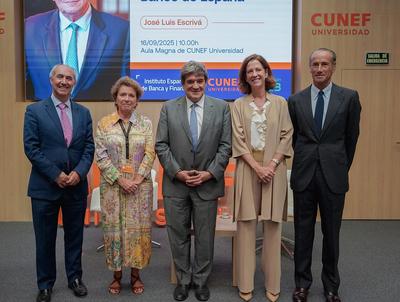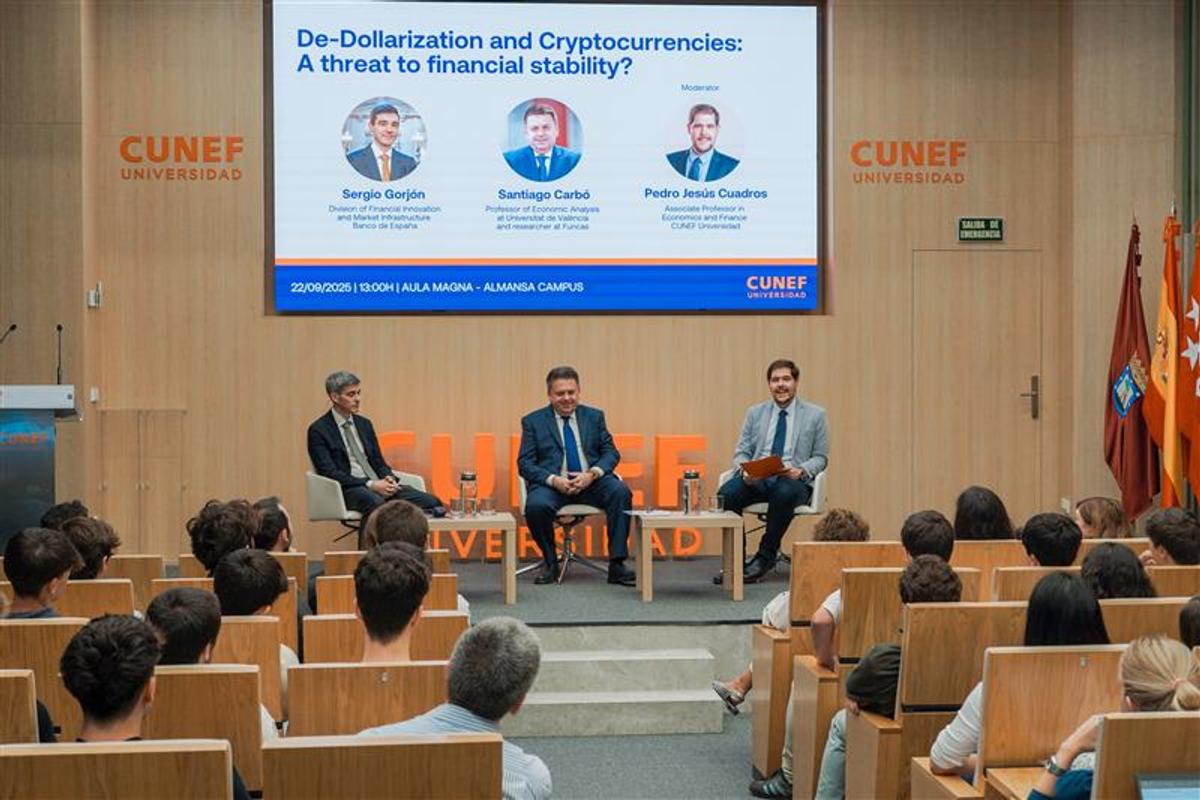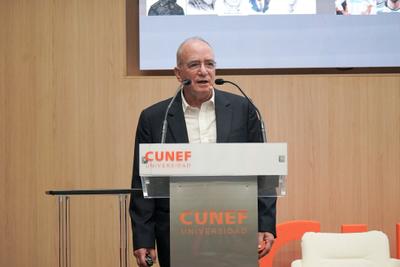
- Home
- CUNEF Universidad hosts a discussion on cryptocurrencies with Sergio Gorjón (BdE) and Santiago Carbó (Funcas)

CUNEF Universidad hosts a discussion on cryptocurrencies with Sergio Gorjón (BdE) and Santiago Carbó (Funcas)
22 September 2025
Last Monday, 15 September, the School of Business, Economics and Law organised a complementary activity for undergraduate students in the Auditorium of the Almansa Campus. The session, “De-Dollarisation and Cryptocurrencies: A threat to financial stability?”, addressed the present and future of cryptocurrencies, stressing the need for regulation designed to protect the user and, at the same time, not limit innovation.
Sergio Gorjón, Head of the Division of Financial Innovation and Market Infrastructure at Banco de España, and Santiago Carbó, professor of Economic Analysis at Universidad de Valencia and researcher at Funcas, shared their insights in a session moderated by Pedro J. Cuadros, Professor of Economics at CUNEF Universidad.
At the beginning of the session, Prof. Cuadros summarised the current situation: crypto markets are valued at 3.8 trillion dollars; stablecoin capitalisation stands at $306 billion; there are more than 9,500 cryptocurrencies and over 250 different stablecoins; the daily turnover in crypto assets is 108,000 million dollars; and there are 137 countries exploring, albeit in different phases, the adoption of public digital currencies.
The speakers pointed out that the United States triggered the explosion of cryptocurrencies, with a major contribution from China when it allowed bitcoin. For experts, there are worrying signs that these markets will continue to evolve and they see more risks than advantages, taking the cases of money laundering using these payment systems as an example. In their opinion, the way to protect consumers and contribute to financial stability in Europe is regulation, although this is sometimes seen as a barrier.
In this regard, they highlighted the need not to depend on payment solutions based outside of Europe, focusing on the digital euro project. For Gorjón and Carbó, we must ensure that public money remains a payment solution in an increasingly digitalised world.
The next activity for undergraduate students organised by the School of Business, Economics and Law will take place on 6 October. It will feature the presentation “Does the United States have a problem?”, by Javier Gomá, Chair of Exemplarity at CUNEF Universidad.
